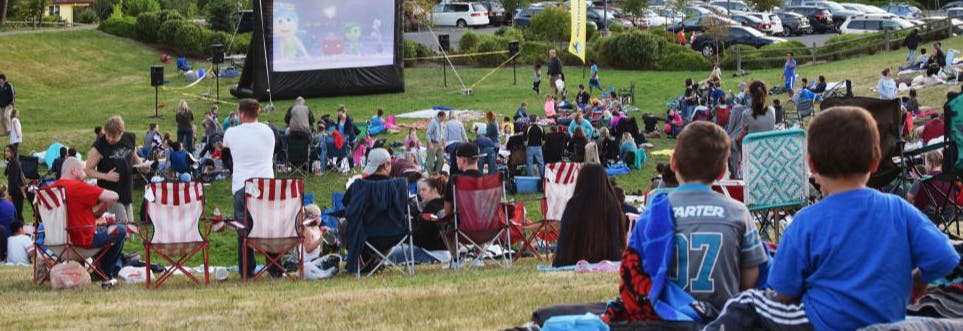Neighborhood Hubs
Consultation has concluded
Thanks to everyone that participated in the Neighborhood Hubs interviews, neighborhood meetings, and community workshops! The code amendments have been adopted!
Milwaukie City Council held a public hearing on the proposed code changes on May 7, 2024 (6 p.m.). The hearing was continued to July 16th, 2024 and again to August 6th, 2024 where the amendments were adopted.
The Planning Commission held a public hearing on the proposed code changes on March 12, 2024 (6:30 p.m.). The Commission voted unanimously to recommend approval of the proposed amendments.
Prior to the hearings, staff updated City Council on the project at the Tuesday, December 19, 2023 (4 p.m.) Work Session. Planning Commission considered recommended code changes at their January 23, 2024 (6:30 p.m.) Work Session.
The city and consultant team spent 2023 engaging business owners, property owners, and community members in Phase 2 of the Hubs project. Outreach has included interviews, neighborhood meetings, and six neighborhood workshops focused on proposed code changes and economic development programming.
For a summary of our community engagement, click here.

What does zoning do? When will I see changes happen?
Zoning is a set of rules that local governments use to designate different types of land uses. For example, zoning could say that a factory can’t be located in a residential neighborhood. However, as cities and communities grow, certain zoning rules can become outdated and limit the types of development communities want to see.
The proposed code changes do not mean the neighborhood will see new uses and development immediately. Changes will depend on the private market, property owners, and developers, and this could take years. However, code changes can lift barriers for property owners and developers to build Hub type uses such as temporary gathering spaces, pop-ups, food carts, and mixed residential and commercial uses.
How can economic development tools support businesses and property owners?
New and existing businesses need support to start-up, grow, and remain stable. Economic development tools help:
Provide new businesses with technical assistance
Support upgrades and growth of existing businesses
Promote and advance Hubs
The City is limited in the amount of available funds and staff to run different types of tools and programs. The Hubs project is focusing the list of possible tools to match up with specific Hub types and will make recommendations based on program costs, staff considerations, community feedback, and the city economic development budget. You can read more about the economic development tools under consideration in the 1/23 Planning Commission Work Session packet.
Summary of proposed code changes

- Re-zone properties in the Limited Commercial zone (CL) to Neighborhood Mixed Use (NMU) and eliminate the Limited Commercial zone. This would impact the Trolley Trail Hub in Island Station as well as the 7-Eleven Hub at Harmony & Linwood, ultimately allowing residential and commercial mixed use development in these areas.
- Create a new Small Mixed Use zone (SMU). Re-zone properties in the Neighborhood Commercial zone (C-N) to SMU and eliminate the Neighborhood Commercial zone. This zone would permit more commercial uses outright and allow for mixed use buildings (including commercial and residential components). The new SMU zone will allow buildings up to 35 feet tall which is the same height limit in the existing C-N zone. This change would apply to Roswell Market Hub in Ardenwald, Sunny Corner Market Hub in Hector Campbell, and the Little Blue Store which is not considered a Hub due to its proximity to Milwaukie Marketplace. This proposed change will also re-zone the Milwaukie Floral Hub as SMU.
- Expand the 42nd Ave NMU zone by re-zoning the Chapel Theatre site at 4107-4117 SE Harrison St from Residential-High Density to Neighborhood Mixed Use. Add theaters, playhouses, bars, and cocktail lounges as allowed uses in the NMU zone.
Planning Commission is scheduled to hold a hearing on proposed code changes on March 12, 2024. City Council is expected to consider Planning Commission's recommended code package on April 16, 2024. This page will be updated to reflect current dates and meeting links as they become available. You can provide written testimony to Planning@milwaukieoregon.gov.
What is a Neighborhood Hub?
Neighborhood Hubs are gathering places where residents have easy access to goods and services close to their homes. They are places where neighbors create meaningful relationships with each other.
Hubs vary in size and intensity, some can be as small as a neighborhood amenity like a tool library or pop-up event. Others could be larger like a cluster of buildings with housing located above shops and services. Hubs take time to develop; some may take several years and some may never develop.
There are many existing hubs in the city, and places potential hubs could develop. In 2017, community members created a vision for Neighborhood Hubs and since then, the City has worked with the community exploring how to put that vision into action. You can read the 2017 Milwaukie Community Vision and Action Plan here.
Learn more about Neighborhood Hubs in FAQs.



